Oral History no.3
“The Changing Tides of Ocean Grove: Katie Toskaner’s Life and Leisure at the Shore”
Listen to her story.
Katie Toskaner, a longtime visitor and resident of Ocean Grove, shared memories spanning from vacations in the mid-20th century to her life there today. She first learned about Ocean Grove while vacationing in Asbury Park, eventually buying a home in 1998 with her husband, retiring there full-time about a decade ago. She recalled beloved landmarks like the Homestead Restaurant, Nagles pharmacy and café, the Sampler Inn cafeteria, the North End swimming pool, and the Carol Inn, as well as small shops such as a “junk shop” at the north end. She described past traditions and strict rules—no cars on Sundays, required skirts for women on the beach, and restrictions on bathing attire—and contrasted them with today’s more relaxed atmosphere. Her stories included neighborhood friendships, summer concerts, and dining traditions, along with fond recollections of her family, especially her late husband and young son. Now in her 90s, Katie appreciates Ocean Grove’s charm, accessibility, and sense of community, even as it changes over time

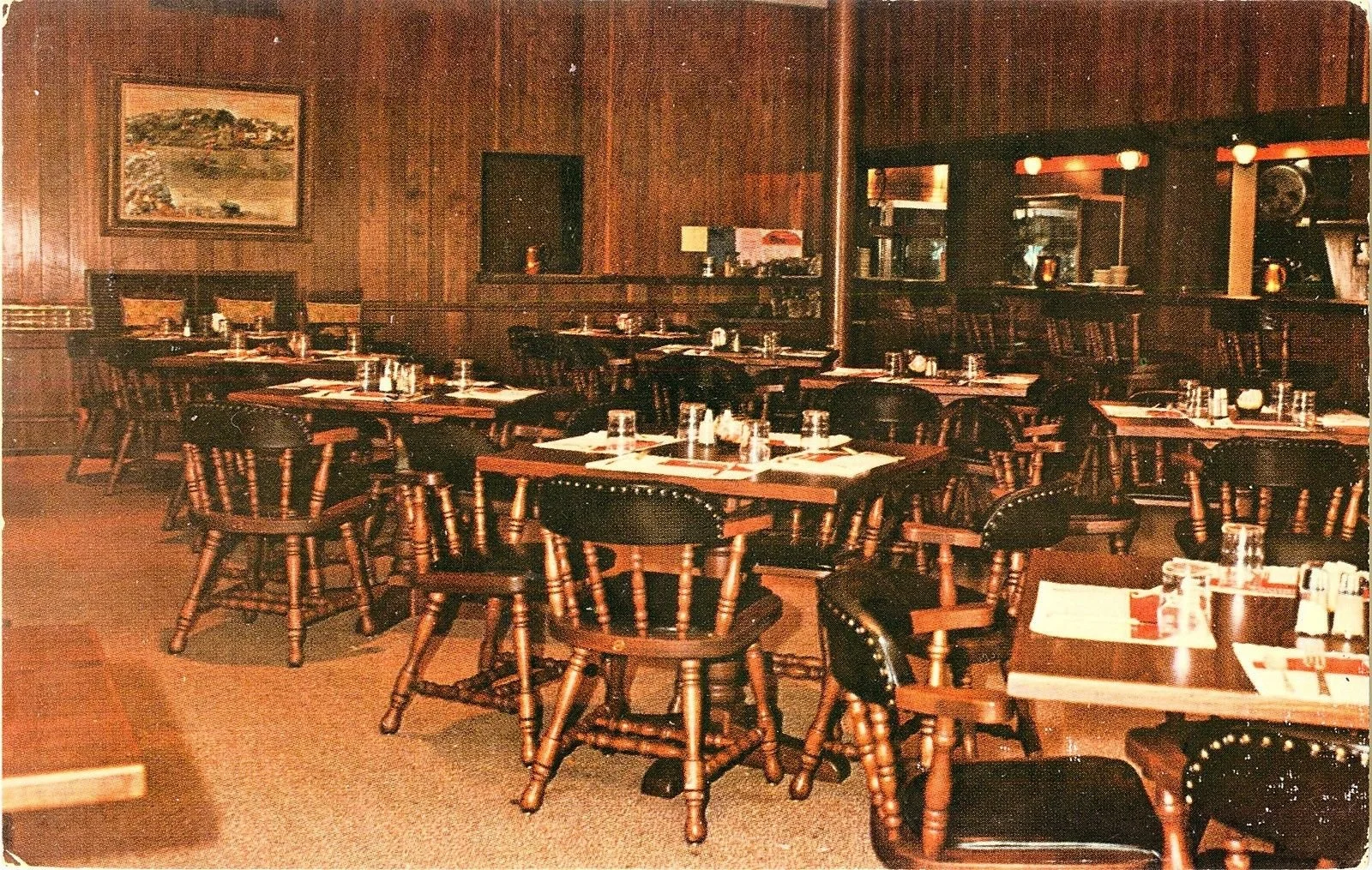


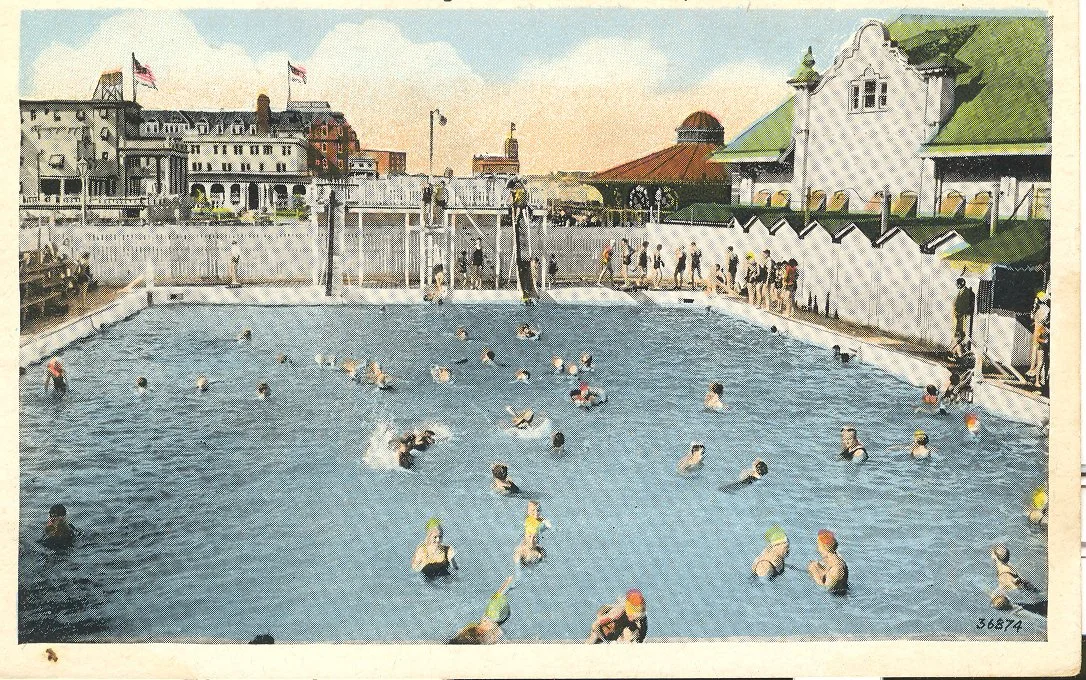

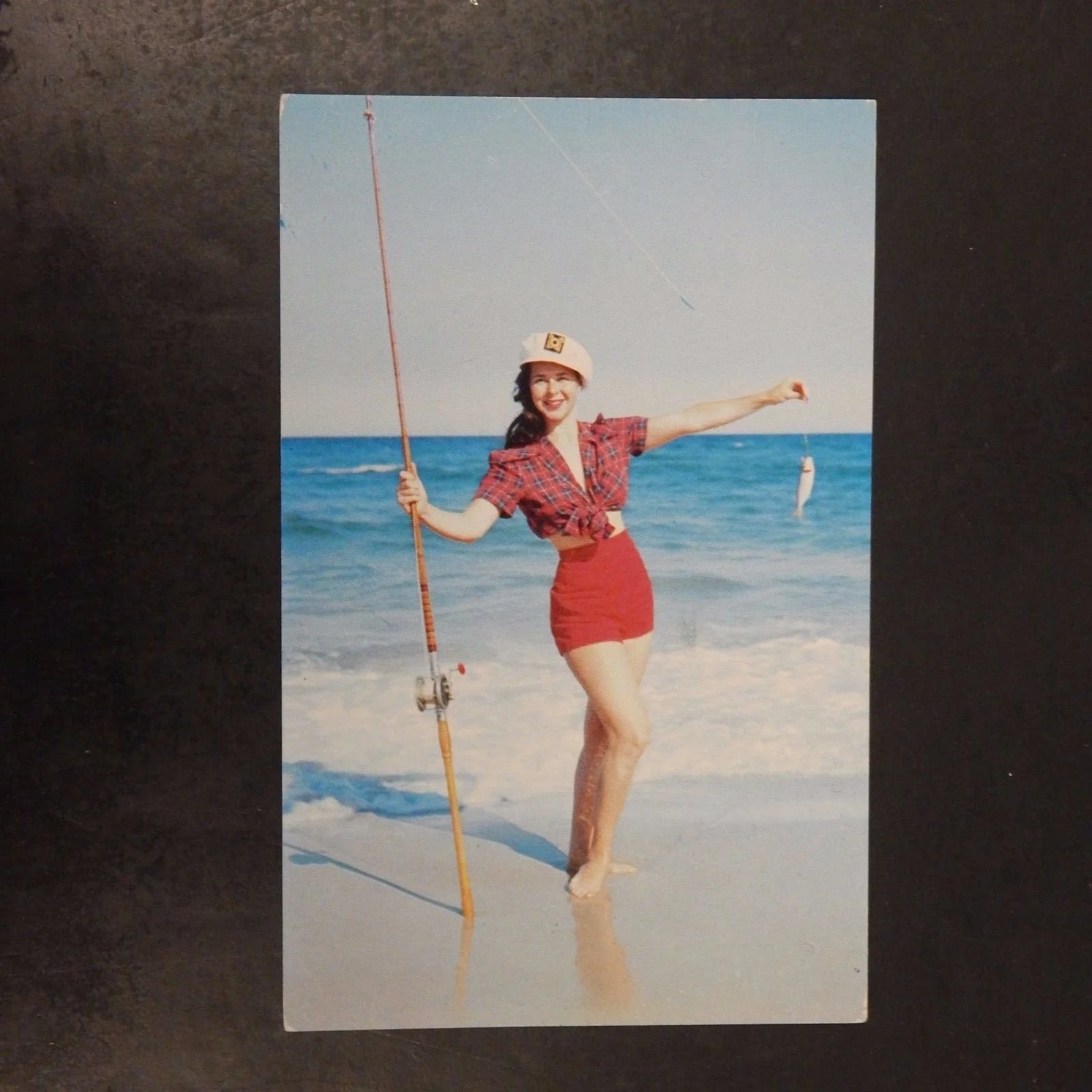
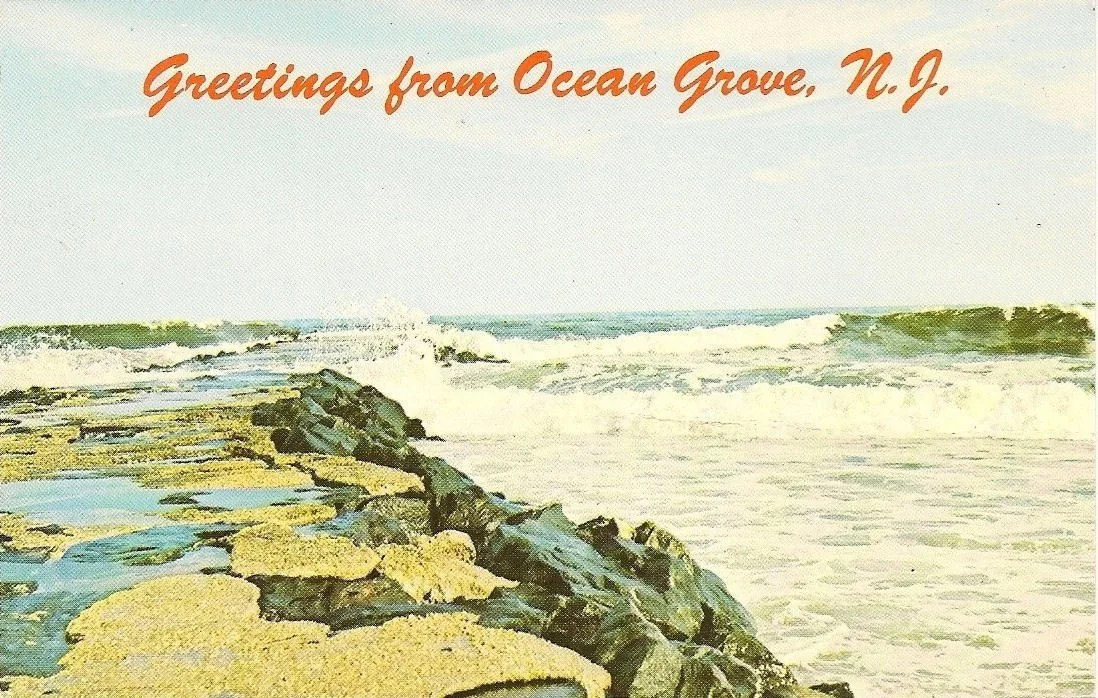



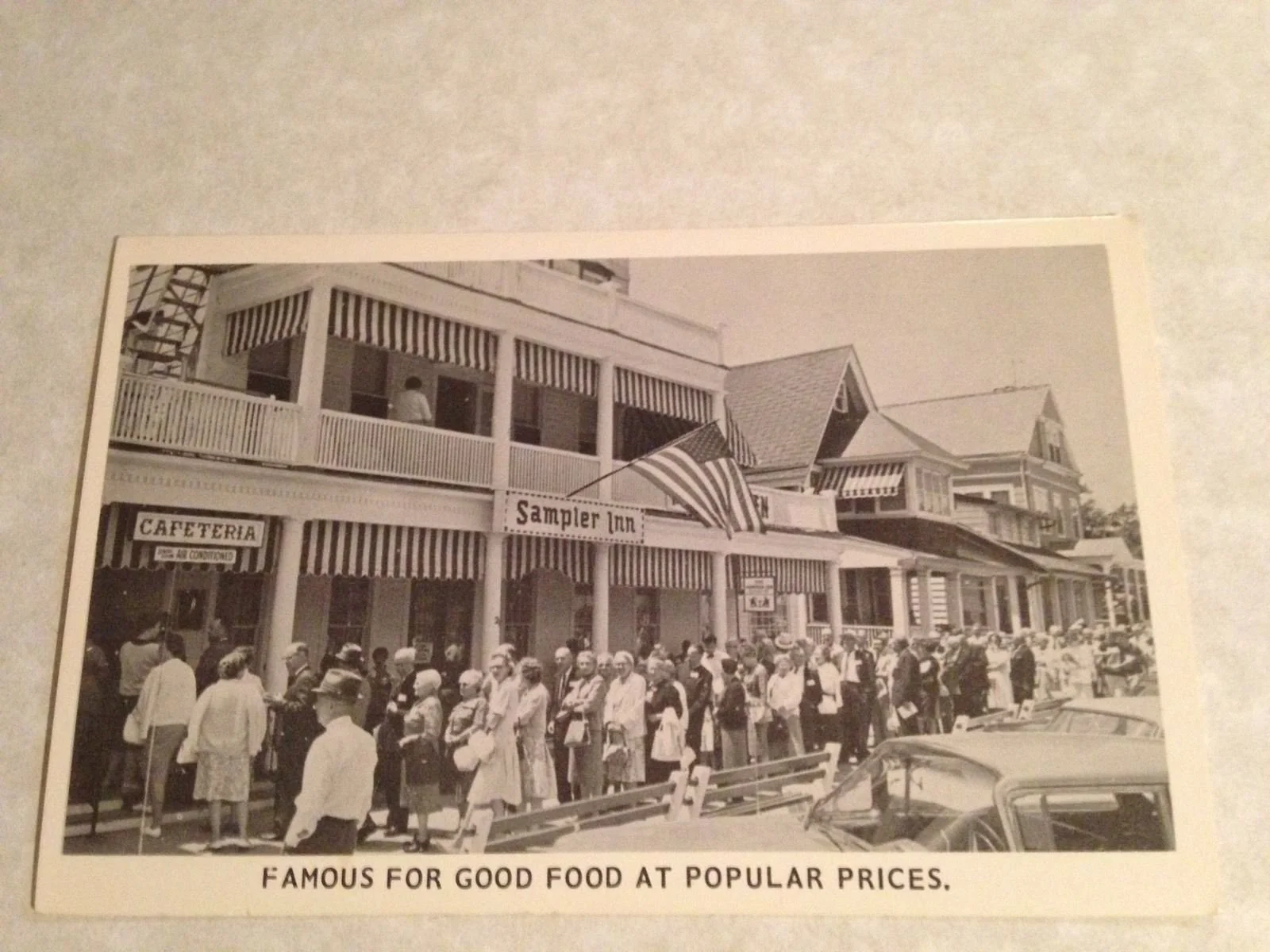



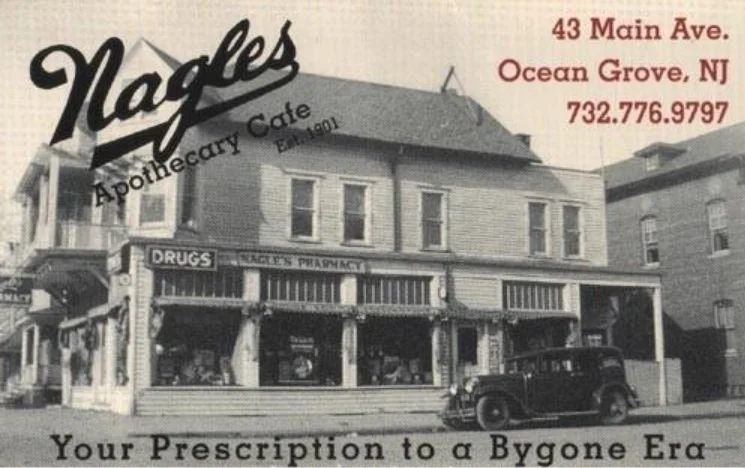

Melinda: Today is May 23, 2024. I am Melinda Alan Grote, and I am meeting this morning with Katie Toskaner at her home in Ocean Grove. And Katie is participating in the Ocean Grove Historical Society's oral history project. So thank you so much for agreeing to tell us some of your stories of Ocean Grove.
Katie Toskaner: Oh, you're welcome, I'm sure. A pleasure. I don't always have the best memory of some things, names particularly, but pretty good.
Melinda: Okay, so tell me some of your memories of Ocean Grove. Like how long have you been coming here? How long have you lived here? How long have you lived in this house?
Katie: We bought the house in around 98.
Melinda: Okay. 1998.
Katie: Right. And we came down on weekends from New York and Yonkers, where we lived, my husband and I. He has since passed, and we decided we were going to live here when he retired from business because he worked in New York. And we did that and we became residents about 10 years ago, I guess, maybe a little more. And I've lived here as a widow now for many, many years, and I enjoy Ocean Grove. I heard about it from when I used to go on vacation in Asbury. And people would say, oh, there are lovely restaurants down there, and there's a cafeteria where you can eat cheaply. It's lovely. Why don't you go? The Homestead Restaurant is beautiful, right on the border of Asbury. And so I did. I investigated it with my husband, and the Homestead was lovely. It's changed hands and of course, burned down. And, you know, that's more recent history, of course.
Melinda: When. When was your first time coming here to Asbury, to this area?
Katie: Well, we always came on vacation and we stayed at various different places. And before I married my husband, I married him when I was late late 30s. He had already come with his family for years, so he knew about Ocean Grove, but I did not. My husband and I used to go to Asbury for a while, and then someone in Asbury suggested about these nice restaurants here, and that's when we did. You know, my husband said, I know the place. And we came down.
Melinda: So that was the 50s, 60s, 70s.
Katie: Yes. Around that time. I remember at the Homestead, they had waitresses who had lovely costumes, who had dresses that looked like dirndls from Switzerland or something. Beautiful. In fact, they were so nice that I found out where they bought them. And I bought one for myself, too.
Melinda: Good for you. Good for you.
Katie: So we used to love the boardwalk. There was a swimming pool right at the north end. I think it might have been actually across from the Homestead Restaurant. And I believe it might have been actually part of Asbury. But we went to the swimming pool there. And they had little, dressing booths. And you left your clothes there, put on your suit. And there was a tunnel that led from the hotel where the swimming pool was under the boardwalk into the sand. So you could go onto the beach or swim in the pool. And we usually did both.
Melinda: How old were you when you were doing that?
Katie: Well, I was in my late 30s, maybe 40 already.
Melinda: Okay, so 50 years ago. About 50 years ago. Okay.
Katie: And they had very strict rules about the boardwalk, what you could wear. That's why you couldn't go onto the boardwalk to get to the beach in your bathing suit was not allowed.
Melinda: Interesting.
Katie: And even on the beach on Sundays, there were rules that when the beach was opened, I believe it was that you had to wear a skirt. If you were a lady thinking that that would prevent you from changing on the beach into a bathing suit. They didn't want that. And they felt if you did wear slacks, it would be easier to change perhaps, I don't know. But I remember you had to wear a skirt. There were all sorts of rules like that. Today on the boardwalk, you could wear anything. I see all the bathing suits go by. And they used to line up around 5 o' clock already to get into these nice eating places here, especially the one cafeteria where people lived upstairs (The Sampler Inn). But downstairs they had this huge room that was part of the cafeteria. And you would line up and you'd go in around 5 o' clock already and have a nice meal. And they had beautiful embroidery on the walls that were done by people, I guess they had collected them. And they were lovely pictures, handmade, I believe. And I don't know what happened to them because of course, that is no longer a restaurant like many other places. I have a remembrance of Nagles, which is closed at the moment, but we're hoping it's going to open again. It's still there. It's not torn down. And that started as a pharmacy with a counter, a food counter and a few booths at the back. We used to go there for breakfast. I remember that we would want to take that one or two. I think they had two booths and if you went around 10 o', clock, you couldn't get a booth because all the entrepreneurs who had the shops on Main Street in Ocean Grove would go there and meet for breakfast. And so we had to make sure that we weren't disturbing them, that we had a booth that was still empty. We went a little later.
Melinda: So this was in the 80s, the 1980s, do you think?
Katie: Probably. I'm not sure of the dates anymore, probably.
Melinda: And so you were married at the time?
Katie: Oh, yes, yes. And we stayed at various places. Our favorite turned out to be Carol Inn, which is no longer an inn, but Carol was lovely.
Melinda: Where was that?
Katie: That was on one of the streets leading to the boardwalk.
Melinda: This side of Broadway or the other side of Broadway?
Katie: It was on Ocean Pathway, actually, I believe. And it still has something up on the top, but it's not the same. She had, as you can see, my mug here, she had a bicycle as her motif, and she had a metal antenna on the roof that looked like a bike. And I believe it might have spun around a wheel, but I'm not sure of that anymore. And she lived in an apartment with her mate upstairs, but all the guests weren't allowed up there. And she would come down when you had breakfast on the porch, and she would talk to you. You and you became friends. She was a lovely lady. I don't know what happened to her. I know she moved away, so I was sorry to see that when that happened. Another memory is we used to go to what we called the junk shop. I'm sure the owner didn't like that.
Melinda: Where was that?
Katie: At the north end, just across the border. It burned down, of course, when we had a big fire. But we would go in there, and they had beach blankets and all sorts of little trinkets, souvenirs that you could get. And you would go in there and you always found something that you wanted, couldn't miss.
Melinda: Like a treasure chest
Katie: Right, Exactly. And it was fun. And we named it the Junk Shop because everything was cheap. And that appealed to us. Of course, we didn't have that much money, and I don't know what else I was thinking. We bought this house and, you know, came down and lived here then and we've made a few changes, but the house had only two owners before. The original and the one that we bought it from, Mrs. Wegge. And she was a lovely lady.
Melinda: How old is the house?
Katie: I think it's a little. I think it's 100 or a little bit more. But we don't like to advertise that. We don't want people coming by and, you know, see your house.
Melinda: Right, right.
Katie: So the neighborhood changes a little bit and, you know, rules change. And our neighbor had a fire pit, and we didn't like that because so many homes in Ocean Grove were wood. And I was afraid, you know. And they then passed a rule, I believe it was Camp Meeting's, saying that you couldn't have fire pits in your home. And I was glad to hear that. There are lovely concerts you can see on the boardwalk in the gazebo and we'd love to go to those. And the Auditorium had many more shows years ago on Saturdays. I don't know why they don't anymore. But I know that they had rules about the people who would come to perform that they couldn't say too many dirty jokes. A little risqué was allowed I guess! We're going to have a baseball star. What's his name? I think maybe, you know, he came last year to talk.
Melinda: I don't remember.
Katie: I can't think of it now.
Melinda: At the auditorium during the summer?
Katie: Yes.
Melinda: Do you get over there?
Katie: Oh, yes, quite often. And I no longer drive, which is, you know, you say you don't need a car here, and that's true. And there are no real hills, which is help for someone with my. I have a rollator that I need to walk really securely.
Melinda: Do you walk to the auditorium?
Katie: I can, but I don't do it too much anymore. My son, who lives nearby, not with me, he will drive me, you know, and he. He's very active at St. Paul's is the only church in Ocean Grove, which is interesting. I forgot to tell you. I meant to say that Nagels used to be the only pharmacy in town at one time. And they were so sorry when they decided to no longer have, the pharmacy was going to move. I don't know why that decision was made. But they left. And so now you have to go outside the grove if you want to get, you know, a prescription.
Melinda: Rite Aid or Walgreens.
Katie: Yes, they will deliver most of them, but it makes it a little more difficult. You knew the pharmacist, he would do things for you and have things ready when you wanted. He'd even open up if you had to.
Melinda: Very kind of old school neighborhood pharmacy.
Katie: And the interesting thing about the pharmacy was when they did open up again, they had glass enclosed shelves on the one wall and they had an old typewriter in there. They had the colorful pharmacy jugs that they used to have that was supposed to hold, I guess, different liquids that the pharmacist used. All this memorabilia of old times. And you used to go in there and look at it and say, I remember this. I remember that
Melinda: It was like a little bit of a museum.
Katie: It was, yes. But unfortunately it's closed for the moment. But it isn't torn down. So I'm hoping it never will be, that it will reopen.
Melinda: I think that there are a lot of people that feel that way. I feel that way, yes.
Katie: And of course they had ice cream and there was a window that they used to open after hours and you could buy your ice cream and the.
Melinda: Line would be up all the way down the block.
Katie: Right. Of course, now there is Days', Starving Artist and they have ice cream. And that's very nice too. And I must tell you that we always enjoyed eating in Days because it's like an outdoor place in the summer and you have lots of tables, it's big. And even with that you have to wait on line on a Sunday because people who went to the auditorium would rush over for lunch at days right after. And even then you had to, you know, they didn't take reservations, except I think they had a reservation for the speaker and his family. They always had a table there afterwards. I think they were treated to lunch probably. What else? I don't know. I know that when we went to the pool in the North End, my son, who was very young then, my mother would go with us if she was on vacation and she would throw pennies in the pool and he would dive to get the pennies.
Melinda: What a sweet memory.
Katie: And he always found them. That was a good memory, really. And he remembers that. He was very young, but he remembers doing that. Aside from that, I don't think I can. I don't know. What else would you like to know?
Melinda: What things have changed, do you think? For the better?
Katie: For the worse? I can tell you, I'm sure I don't know for the better. Well, we're a little more open, I guess, in the fact that there aren't the rules that used to be so strict. A little perhaps too strict, you know, even with myself, you know, you find you have to change with the times sometimes not everything remains the same. It just doesn't. And someone was supposed to say, philosopher, 'you can't step in the same water twice'. And it's very true. I remember when the bikini bathing suits first came on the beach. The people like myself would look at them and say, how could they do that? It looks terrible now nobody thinks twice about seeing a bikini now there are tons of thong bathing suits and you look at that and say, what is that? What will come next? I don't know, maybe nude. I think Florida has nude beaches.
Melinda: Do they? Do they?
Katie: There's one, I believe. And you know, if you don't want to do that, you don't go to that beach.
Melinda: Do you still find that you have a friendly neighborhood?
Katie: Yes. I can say they're not friendly, but I'm quite elderly, I'm in my 90s, so that they're younger and they have different things, you know, I can't do much because of my instability with walking. And so I don't know them as I did in the past. I used to know Al Beemer, the Reverend Al Beemer and his wife who lived across the street. And they were really lovely. And I still remember when the World Trade center event happened, he called and said, come on over, watch it on TV with us. What's going on? So he used to sit on his porch, Al Beemer, the Reverend, and when people walked by, he would always talk to them. He was a good visiting pastor, actually, from the church because he was retired and his wife also was lovely. They used to perform opera in the auditorium and there used to be people who knew the Beemers and they always came down and stayed at their house overnight because they wanted to go and see the opera. And then they went home. And the Beemers knew them from when he had a church up north in New Jersey and he used to love to play Scrabble with his wife, the game. And they used to come over here and we'd play Scrabble.
Melinda: So are you the matriarch on the street?
Katie: I am now. I believe there used to be a lady across the street, Rose, and she's passed away, but I think maybe she was a little older than me, not much.
Melinda: So you and Marilyn Shotwell and Karen Thorpe. Do you know Karen Thorpe?
Katie: I probably know her face from, you know, but I can't, you know, place.
Melinda: Okay. She lives on Broadway, so I'm going to visit her this afternoon. She's up in her 90s as well. So we're trying to capture all of your memories and stories.
Katie: That's good.
Melinda: Anything else you would like to add?
Katie: Not that I can think of. Let me see my notes. Oh, the fact that on Sunday, of course, it used to be no cars allowed on Sunday. And it wasn't just that you couldn't drive your car, you couldn't have it in the Grove, you had to take it out. So a lot of people before midnight would head to the parking lots either in Bradley Beach, there's a whole block empty that was used at a parking lot lot and they charged you, or you would go to Asbury and they had a parking garage. Across the street was a lovely department store and they had a luncheonette downstairs. And people would, you know, park in the garage and go across and have lunch there.
Melinda: What a sweet memory.
Katie: And at that time, cotton dresses were what the women would wear when they did their housework. And they wouldn't put on their street clothes until they went out in the afternoon. And so there was a cotton shop that we always visited to. And my aunt, who used to come down with us on vacation. Oh, she always wanted to go and buy a cotton dress. I think there was a shoe store there had very inexpensive shoes. So you always made a day of it. But I remember my son, who, of course, was a young child at that time, and he wanted to go to the beach. He said, can't we leave? You've done enough shopping. Let's go. Let's go. So there was always a contention that way, otherwise we enjoy the house. And the lady left us her furniture when she left because she went to the home across the street. And so we had the furniture that we. We didn't have to buy any then, which was nice because we were only coming on vacation at that time. We weren't moving.
Melinda: When did you. What year did you move here? You've been here for 10 years? Full time?
Katie: About. Yes. So anyway, we've enjoyed the house immensely and made some changes. My husband was incapacitated for a while, and so we had the bathroom made wheelchair accessible and things like that. So my son put up hand grips that you could grip onto, and I now use them. I find they're useful.
Melinda: Right.
Katie: I enjoy Ocean Grove. It's a special place.
Melinda:
It is a special place. Thank you so very much.
